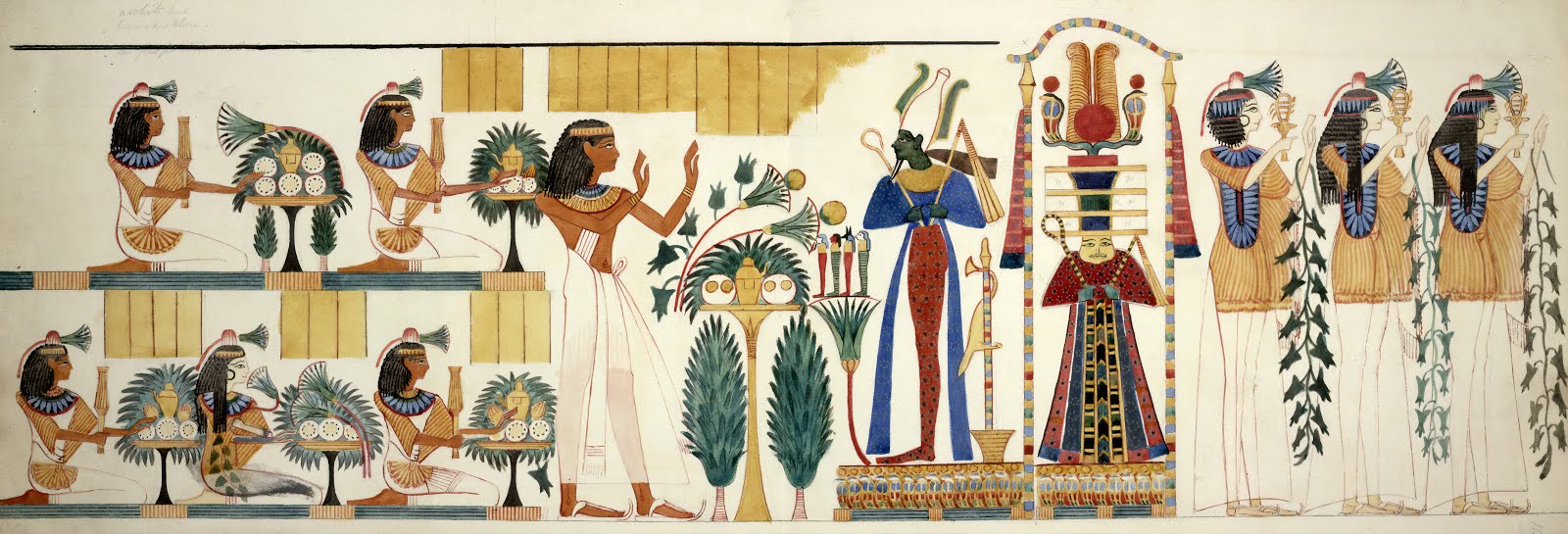
Surat Al-Fatihah includes these three axes:
1- In the axis of the faith we read his saying - Almighty -: {Praise be to God, Lord of the worlds * The Most Gracious, the Most Merciful * King of the Day of Judgment. For monotheism and belief in God, Lord of the worlds, and the Last Day are the basis of the Muslim's belief.
2- On the axis of worship, it reads: “You worship and you must seek help.” All worship and its entirety is for God alone.
3- In the approach to the life of a Muslim we read: {Guide us on the straight path * the path of those whom you have bestowed * not to the wrath of them nor the lost}. This is the goal of the Muslim and his approach in his life.
Accordingly, we find the entire Qur’an after Surat Al-Fatihah, either by explaining beliefs or indicating how we worship God -the Most High - or by telling about the methods on earth, the paths of the oppressors and the lost, and the ways of the survivors.
Accordingly, the chapters of Al-Fatihah were collected, included and shortened the three axes of the Qur’an - Glory be to God
Literature with God:
This surah teaches the servant manners with his Lord, as it is divided into two halves. The first half is a praise to God, and the second half is a prayer to Him ... Praise be to God is evident in the verses {Praise be to God, Lord of the worlds * The Most Gracious, the Most Merciful * The owner of the Day of Judgment * You worship and you shall not seek help. The surah teaches a person how to deal with God. If he wants to pray, then it is desirable for him to praise God first (he begins with the praise and glorification of God, then the prayer on his Messenger - may God’s prayers and peace be upon him -) and after that the supplication is answered by God willing. God
The recitation of Surat Al-Fatiha opens for you the greatest doors of honor, which is dialogue with God - Blessed and Exalted be He - and this is why it came in the hadith Qudsi: {The prayer between me and my servant is divided into two parts, so if the servant says' Praise be to God, Lord of the worlds, 'God said' Praise be to my servant, 'then if the servant says' The Most Compassionate, the Most Merciful. ”God said,“ My servant praised me. ”So if the servant said,‘ The owner of the Day of Judgment ’, God said:‘ Glorify my servant ’, then if the servant says‘ You worship and you must ’help’ ’’ God said ’This is between me and My servant’. The straightforward one is the path of those whom I have bestowed upon neither the angry nor the lost. ”God said,“ This is between me and my servant and my servant, what he asked. ”} So you feel that whenever you read Surat Al-Fatihah, God Almighty answers you .. What honor is this in a dialogue that the Lord of Glory repeats and rewards you with the answer Even though you did not bring something new and did not prefer anything from you, the Almighty is worthy of praise as you say and better than what you say. This is Surat Al-Fatiha (some of its great aspects) with your personal card, O Muslim, and your passport to understand the great Qur’an.
The reason for the revelation of Surat Al-Fatihah:
The reason for the revelation of Surat Al-Fatihah goes back to what was narrated by Ali bin Abi Talib, may God be pleased with him, in an incident that occurred between the Messenger of God, may God bless him and grant him peace, and Ruqah ibn Nawfal, in which Abu Maysara says that the Messenger of God, may God’s prayers and peace be upon him, would have heard a caller to him: O Muhammad When he heard the voice, he went running, and Waraqah ibn Nawfal said to him: If you heard the call, stand firm until you hear what he says to you. He said: When he emerged, he heard the call: Oh Muhammad, and he said: To your mind, he said: Say: I bear witness that there is no god but God, and I bear witness that Muhammad is the Messenger of God. He said: Say: Praise be to God, Lord of the worlds, Most Merciful, Most Compassionate, Malik on the Day of Judgment, until he completed the opening of the book.
Objectives of Surat Al-Fatihah:
Ibn al-Qayyim mentioned in the introduction to his book “Madarij al-Salekeen” that this surah included a response to all the sects of the people of innovation and delusion, as it showed the homes of those who walked, the shrines of the knowledgeable, and indicated that only this surah takes its place, and its blockage is not blocked. Therefore, it was not revealed in the Torah, nor in the Bible like it.
The virtue of Surat Al-Fatihah:
In the merit of Surat Al-Fatihah some hadiths were mentioned, including: On the authority of Abu Hurairah, may God be pleased with him, on the authority of the Prophet, may God’s prayers and peace be upon him, who said: “The prayer between me and my servant was divided in two halves, and my servant did not ask. My servant and if he said: The Most Gracious, the Most Merciful, God Almighty said: My servant praised me, and if he said: Your owner on the Day of Judgment, he said: My servant glorified me, and he once said: He delegated to my servant, and if he said: You worship and you shall not seek help, He said: This is between me and my servant, and my servant did not ask. If he says: Guide us to the straight path * the path of those whom I have blessed, neither those who are angry nor lost, he said: This is for my servant, and for my servant he did not ask.
Al-Bukhari narrated on the authority of Saeed bin Al-Mu'alla, who, peace and blessings be upon him, said: “To inform you of a surah that is the greatest surah in the Qur’an before you leave the mosque.” Then he took my hand, and when he wanted to leave, I said to him: Did you not say to inform you of a surah that is the greatest surah in the Qur’an? He said: “Praise be to God, Lord of the Worlds.” It is the Seven Muthani and the Great Qur’an that you have given.
On the authority of Anas bin Malik - may God be pleased with him - he said: The Messenger of God - may God bless him and grant him peace - was on his way and went down, and a man of his companions went down next to him and turned to him and said: “Shall I not tell you the best of the Qur’an?” Then he read to him: “Praise be to God, Lord. Worlds ”.
- Among the secrets of Surat Al-Fatihah to fulfill the needs: What was said from Sheikh Al-Baha'i: He who intends to need the need in three days and recites Surat Al-Hamd Al-Mubarak with Surat Al-Ikhlas both 100 times and then recites this supplication 100 times): O judge of needs, oh enough tasks, oh who raises the ranks, oh bearer O openers of the gates, O healer of the ills, O solver of problems, O cause of causes, O respondent to prayers, O Most Merciful of the Merciful (His needs are fulfilled, God willing. It is preferable to read that on Mondays or Thursdays after the afternoon prayer.
-Changing Surat Al-Fatihah 100 times:
As it was said about the merit of reciting Al-Fatihah 100 times: Whoever recites the Fatihah in this manner (a hundred times), God Almighty fulfills all his needs, both total and partial, as he repeats them.
Where you recite Al-Fatiha 100 times every day, we start it on Thursday and remember your need in two places, the most important of which is in “The Most Gracious, the Most Merciful” and the other in “You we worship and you not seek help” after the morning prayer 21 times, after the noon prayer 22 times, after the afternoon prayer 23 times, and after the sunset prayer 24 Once and after Isha prayer 10 times, for a total of 100 times, and if you do not relieve yourself in the first week, repeat that in the second week and your need will be eliminated, God willing.
21 times after the morning prayer.
22 times after the noon prayer.
23 times after the afternoon prayer.
24 times after the sunset prayer.
10 times after the evening prayer. This is proven.









0 Comments